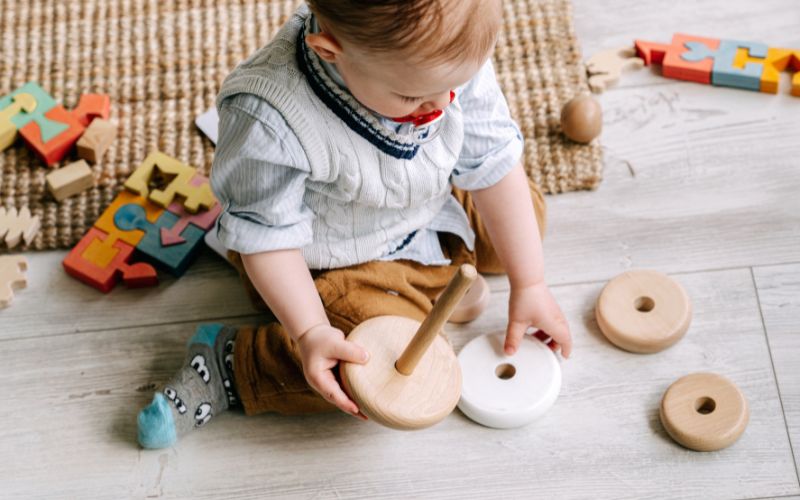According to the Institute for Child Research at Bryn Mawr College, Pennsylvania, USA, 2-year-old children should be able to say at least 20 different words and use them regularly. These 20 words are considered the foundation for vocabulary development, and even children who are slow to speak will be able to use them.
1 20 Common Words That 2-Year-Olds Should Be Able to Say
- Mom/Mama: Mom or Mama is one of the simplest words, familiar to young children who often hear it from birth. Therefore, it is natural for children over 1 year old to clearly and distinctly say “mom.”
- Dad/Papa: Similar to “mom,” “dad” or “papa” is also a familiar word that children often say in their early years, as parents are the people they spend the most time with.
- Milk: At first, when toddlers say the word “milk,” some parents may not understand what they mean. However, by the age of 2, children can clearly say, “Mommy, milk.”
- Baby is one of the basic words that many preschoolers often say.
- Water is used by young children in various situations, such as when they want to drink water or when water is spilled.
- Hello: While mothers can teach their children how to greet others from the age of 1, this may still be quite challenging for them. By the age of 2, children can learn how to greet by observing and listening to their mothers.
- Goodbye: A simple way to teach young children how to say goodbye is to use the words “bye” or “bai bai” along with a waving gesture.
 20 Common Words That 2-Year-Olds Should Be Able to Say
20 Common Words That 2-Year-Olds Should Be Able to Say
- Yes/Yes, please/Okay: Children should know these words to politely respond to questions or calls from adults.
- No: Teaching a child to say “no” is important.
- Dog is one of the most popular pets, and children often call them by name when they see them.
- Cat: Similar to dogs, cats are also a favorite pet among children.
- Ball is a familiar toy for children, so it is easy for them to recognize and name it.
- Nose: Adults can teach children about the different body parts, for example, that the nose is for smelling.
- Eye is also a word that many 2-year-olds can pronounce.
- Banana is one of the most common words that children pronounce when asking their parents for a snack.
- Car is a simple word that many boys like to say.
- Thank you is one of the first words that parents should teach their children to help them learn how to be polite and respectful to others.
- Bath: This is a daily activity, so it is a familiar word for 2-year-olds.
- Hat: Children use this word to refer to anything worn on the head.
- All gone: When children turn 2, they will be able to understand the absence of something. For example, when there is no more milk or water, they will say, “all gone.”
2 What Parents Can Do If Their 2-Year-Old Is Not Talking Yet
- Spend more time talking to your child to improve their vocabulary and communication skills.
- Read books to your child to introduce them to new words.
- Encourage your child to interact with peers to stimulate their communication skills.
- Sing to your child to stimulate their brain and promote language development.
- Limit screen time on TVs, phones, and computers.
- Encourage your child to communicate and provide them with problem-solving strategies to stimulate their brain and language skills.
- Use pictures and objects when talking to your child to make communication more engaging and interesting.
 What to Do If Your 2-Year-Old Is Not Talking Yet
What to Do If Your 2-Year-Old Is Not Talking Yet
The above information provides insights into the 20 common words that 2-year-olds should be able to say and strategies to improve language development for late talkers. Hopefully, this will be useful for parents in raising and caring for their children!
Source: Marrybaby.vn






































